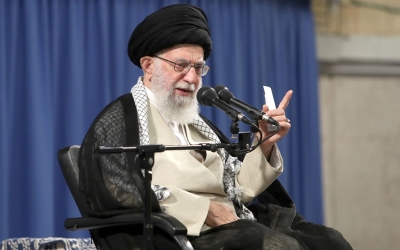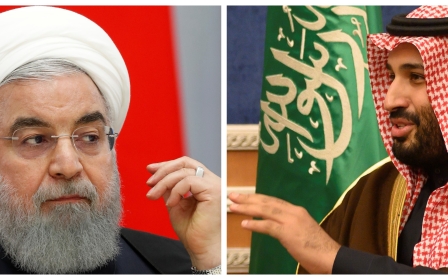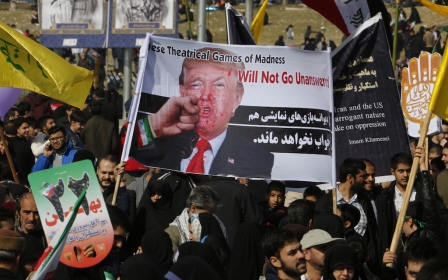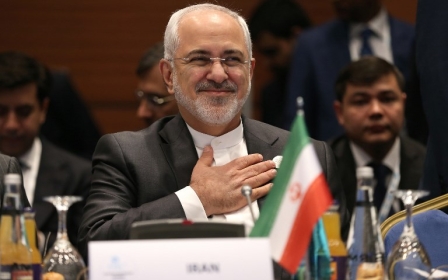The UAE steps back from the abyss with Iran
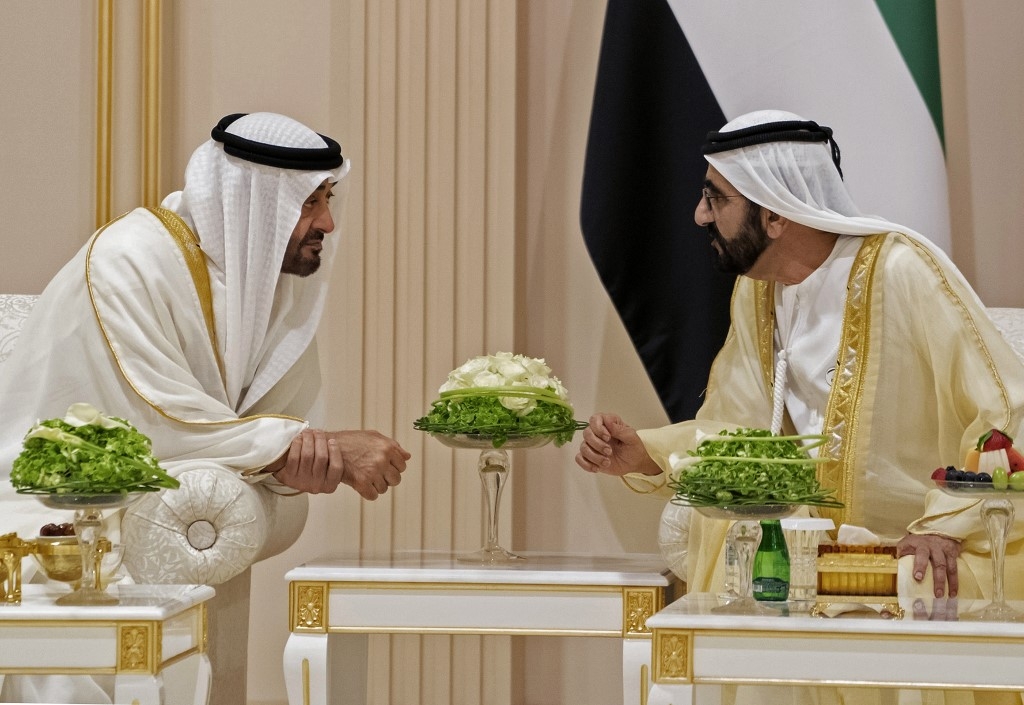
We have seen quite a policy shift in Abu Dhabi towards Iran in recent weeks.
While Abu Dhabi had been lobbying in Washington for a tougher stance on Tehran - against the interests of Dubai and other emirates, and in support of Riyadh's radical anti-Iran policy - the recent escalation of tensions has caused a major strategic rethink.
The UAE has realised that Iran is more resolved and determined to fight back when cornered than had previously been expected.
Soft power
The ambiguous response from US President Donald Trump to the recent tanker attacks and the downing of a drone suggested to Abu Dhabi that it may have to bear the main burden of the conflict if things were to escalate further.
New MEE newsletter: Jerusalem Dispatch
Sign up to get the latest insights and analysis on Israel-Palestine, alongside Turkey Unpacked and other MEE newsletters
The fact that the UAE did not directly point the finger at Iran in the UN inquiry into the Fujairah attacks, saying only that a "state actor" was responsible, shows that Abu Dhabi is on a de-escalation course with Tehran. The policy has shifted from pressure and escalation to diplomacy and engagement; from hard power to soft power.
Abu Dhabi is scared that a confrontation with Iran could undermine everything the UAE has built up over the years
Since June, a few high-level delegations from the UAE have flown to Iran, without an official statement from Abu Dhabi. The delegations discussed regional policy with a focus on Yemen and Syria, as well as maritime border security, airspace security and trade.
The ultimate message from Abu Dhabi to Tehran is: "We are not interested in conflict." Smart power will take precedence over hard power. This has not been coordinated with Washington, as Abu Dhabi's inner circle of power sees this as a matter of national security, to be approached largely unilaterally.
The UAE has relied on the "national security" excuse for a variety of issues where Emirati and US foreign policy diverge, such as Yemen, Libya and Qatar. Since 2014, the UAE has increasingly tried to become autarkic on matters of foreign and security policy.
On the front lines
The unpredictability and ambiguity of the Trump administration on Iran has worried Abu Dhabi, and there seems to be a consensus that, while for the US this might be a game with few direct consequences, the UAE - and other Gulf countries - would be on the front lines of any war.
Likewise, the UAE has not coordinated this move with Riyadh, as Abu Dhabi feels that Saudi Crown Prince Mohammad bin Salman lacks a strategy, both in Yemen and in dealing with Iran.
While Abu Dhabi and Riyadh have cooperated deeply since 2015 on Yemen and Iran more widely, Dubai has always seen a too-hawkish approach on Iran as a problem for business, which constitutes another dimension. The UAE is Iran's most important trading partner in the Gulf, making it particularly difficult for Abu Dhabi to enforce sanctions.
Dubai is already suffering dearly as a result of US sanctions on Iran, and evidence suggests that the UAE has not been as rigorous in implementing sanctions on metal and steel products, and financial products, as Washington intended.
Many of the UAE's activities directly contradict Saudi Arabia's zero-tolerance approach to Iran. While this gap is widening, it does not undermine the two countries' strategic alliance.
The risk of conflict
Ultimately, Abu Dhabi is scared that a confrontation with Iran could undermine everything the UAE has built up over the years, in terms of trade, business relationships, tourism and political leverage. Its military, albeit effective for its size, is completely outgunned by Iran.
Abu Dhabi knows that it could only fight Iran to the last American soldier, but, with Trump being hesitant, there is a realisation that, with its hostile narrative towards Iran in recent years, Abu Dhabi had bitten off more than it can chew.
The views expressed in this article belong to the author and do not necessarily reflect the editorial policy of Middle East Eye.
This article is available in French on Middle East Eye French edition.
Middle East Eye delivers independent and unrivalled coverage and analysis of the Middle East, North Africa and beyond. To learn more about republishing this content and the associated fees, please fill out this form. More about MEE can be found here.



